Abstract
Skinner (1945) proposed an empirical research program in which subjective, mentalistic, or psychological terms from ordinary language could be analyzed in terms of the contingencies that control their occurrence. The practical successes of such a program, however, may face an unusual challenge. The symmetrical relation between the terms and the controlling contingencies may be construed by critics as support for the “intentional criticism,” a frequent criticism of radical behaviorism by philosophers in which intentional concepts are said to “underlie” or are “presupposed” or are otherwise foundational to the technical vocabulary of behavior analysis. These critics thus promote intentional explanations as more fundamental and of more general importance than behavior-analytic explanations of human behavior. A pragmatic counterargument is described in which the vocabulary of controlling contingencies enables uniquely effective behavior with respect to the phenomena that control the occurrence of the psychological term, unlike additional ordinary-language terms that might also be evoked by the term.
Full text
PDF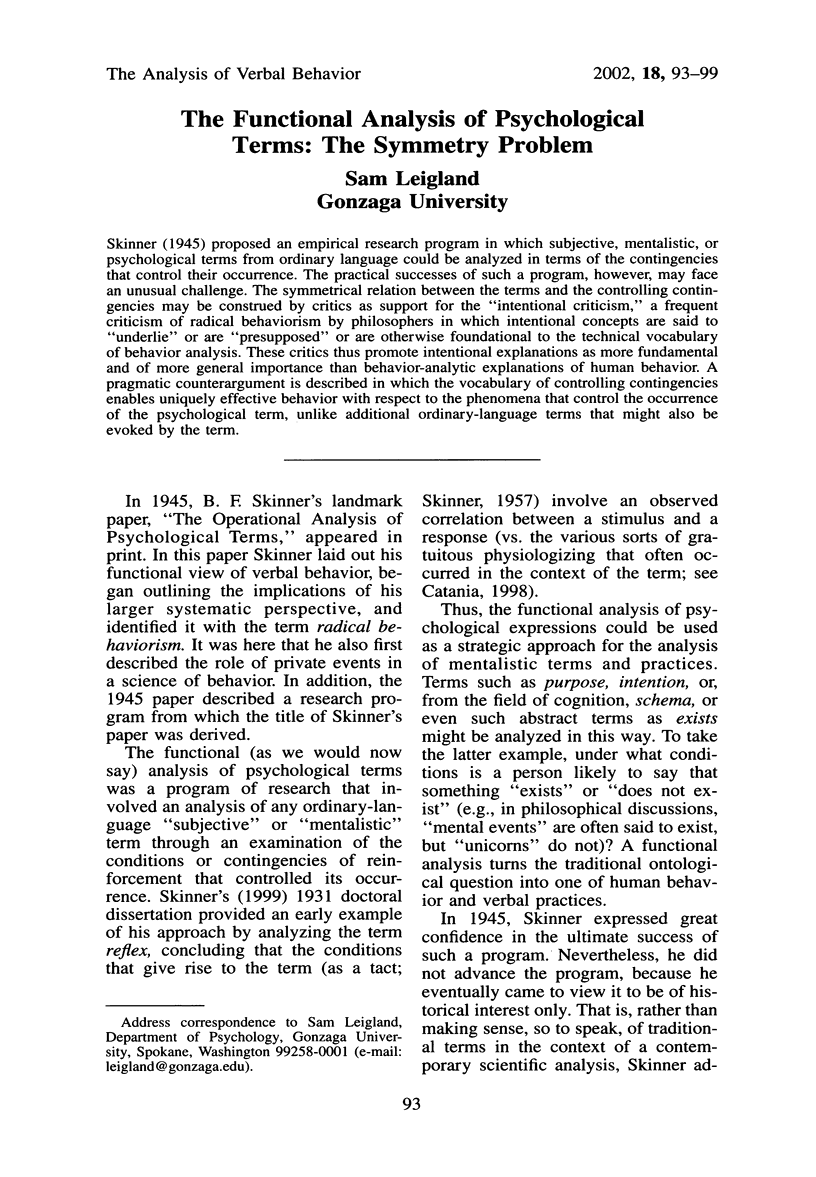
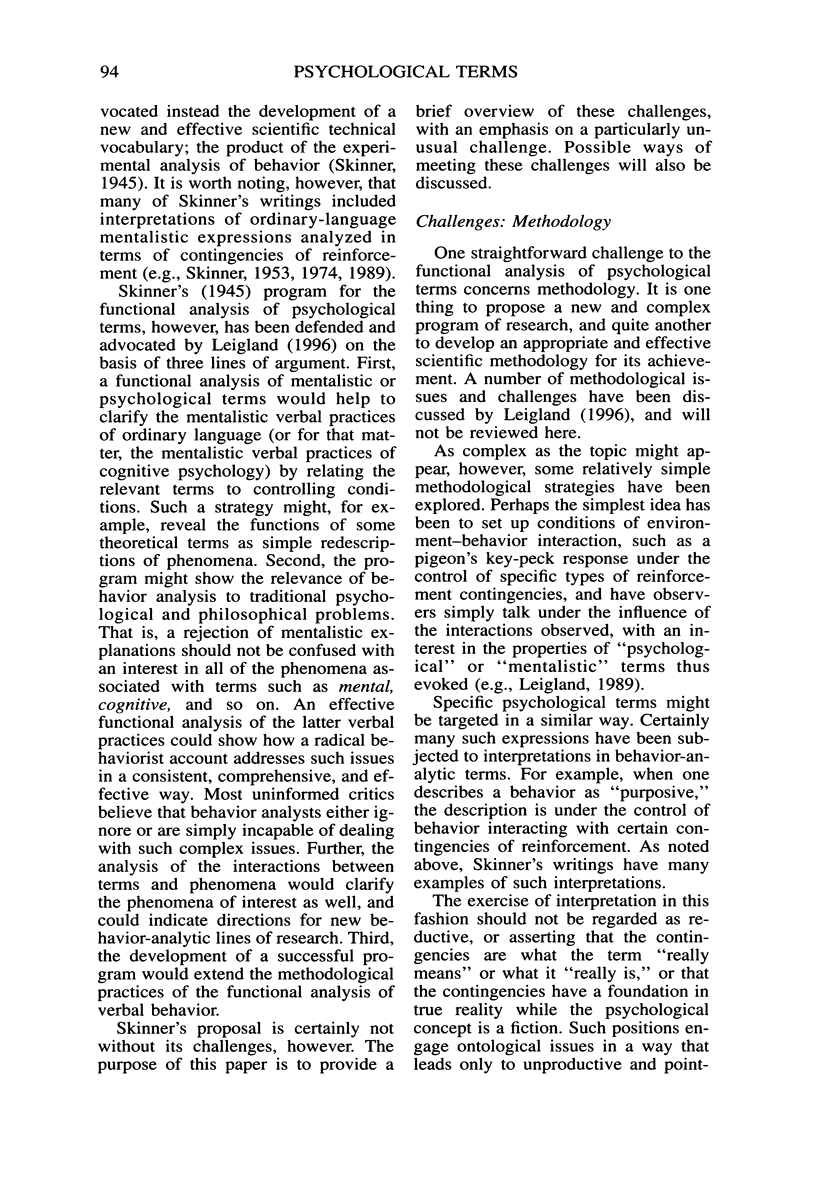
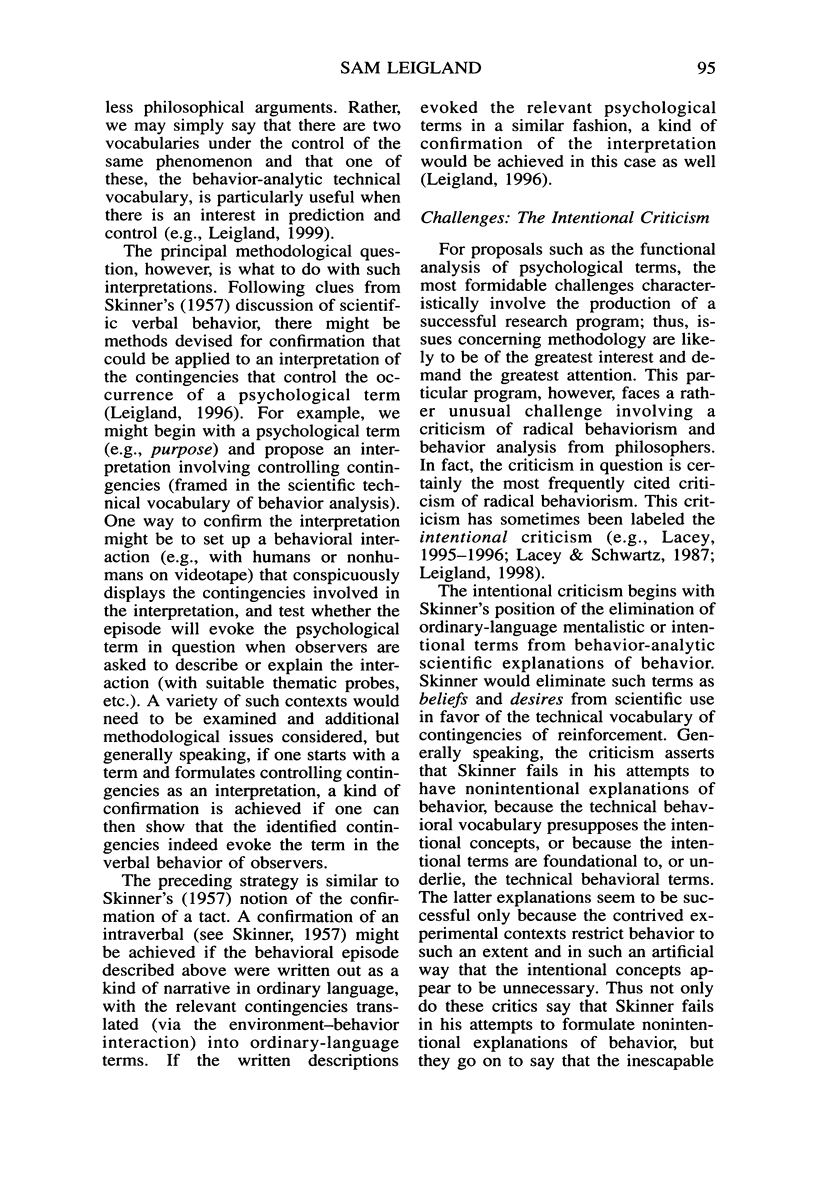
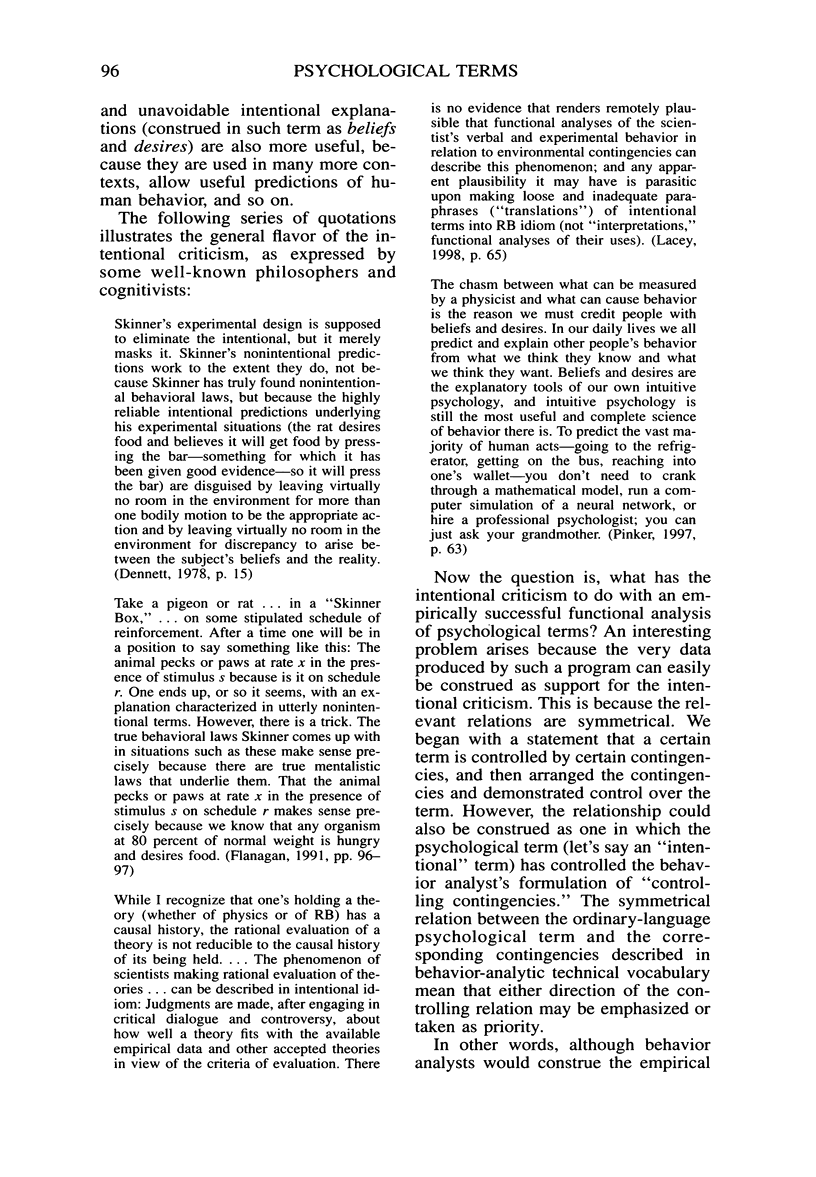
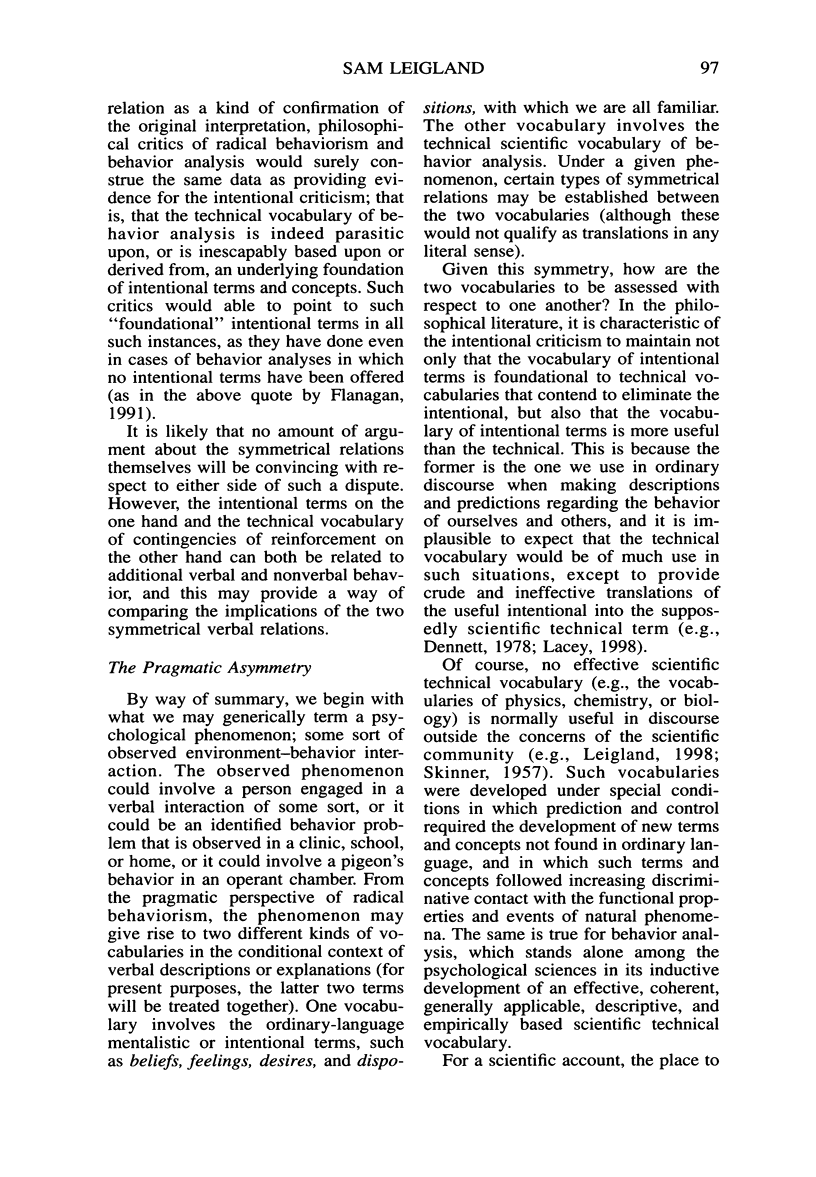
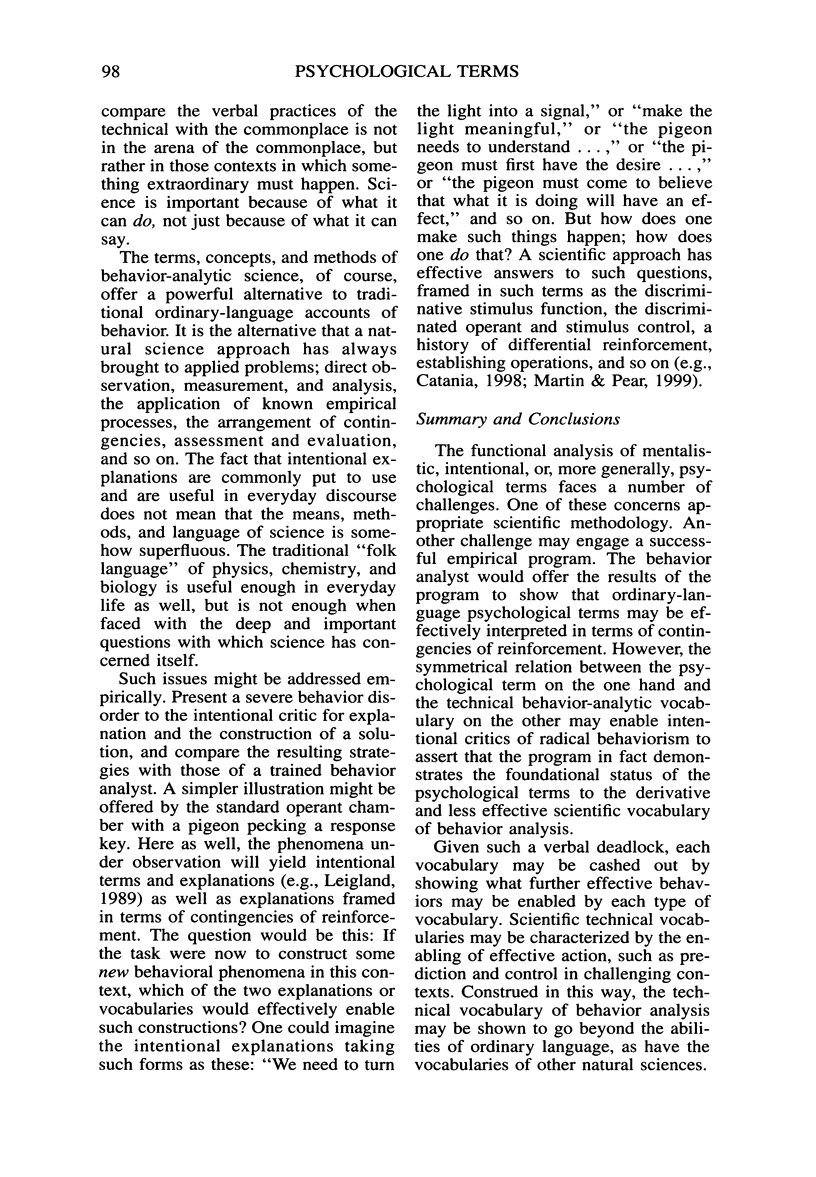
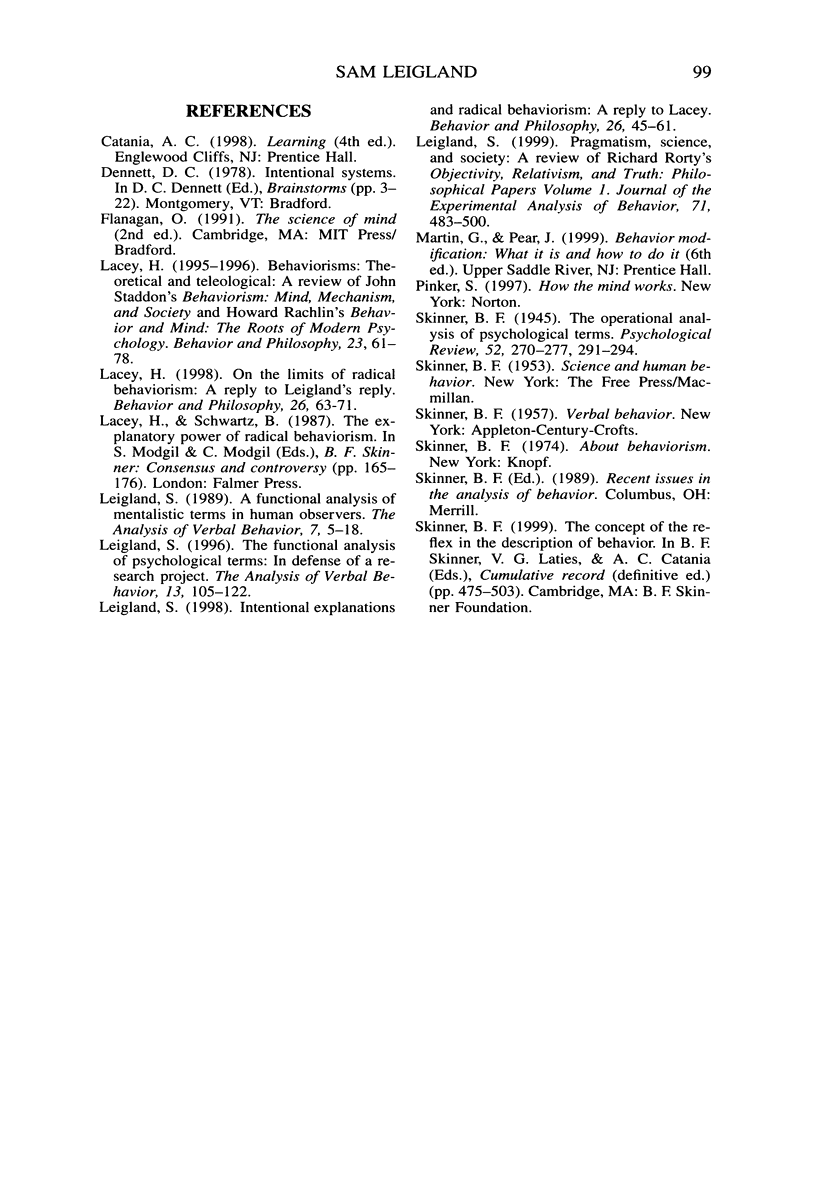
Selected References
These references are in PubMed. This may not be the complete list of references from this article.
- Leigland S. Pragmatism, Science, And Society: A Review Of Richard Rorty's Objectivity, Relativism, and Truth: Philosophical Papers, Volume 1. J Exp Anal Behav. 1999 May;71(3):483–500. doi: 10.1901/jeab.1999.71-483. [DOI] [PMC free article] [PubMed] [Google Scholar]


